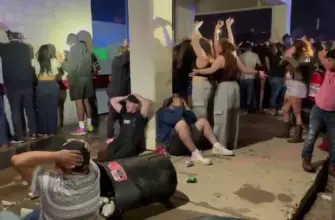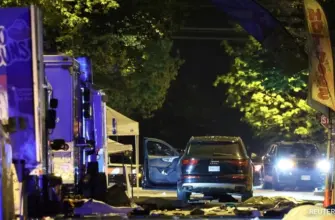A recent report has refuted claims of “two-tier policing” in response to disturbances that followed the tragic murder spree perpetrated by Axel Rudakubana, which claimed the lives of three girls at a Taylor Swift-themed dance class in Southport last July. The Home Affairs Committee’s investigation examined police handling of the ensuing disorder.
The report decisively stated there was no evidence suggesting officers treated individuals differently based on their perceived political beliefs. Instead, actions were taken against those engaged in unlawful behavior such as throwing projectiles, attacking law enforcement officials, and committing arson.
As noted by the committee, led by Tory MP Dame Karen Bradley: “This was not protest.” The report further condemned the accusations of “two-tier policing” as “baseless” and “disgraceful,” particularly given the violence officers faced.
Earlier this summer, Reform UK leader Nigel Farage had expressed concerns that a perception of “two-tier policing” had taken hold in Britain, fueled by what he described as lenient responses to Black Lives Matter (BLM) protests. He suggested that ethnic minority groups were policed differently than white British citizens.
Key Details from the Report:
- By January 22nd, 1,804 arrests had been made related to the disturbances, with 1,072 charges filed, primarily for serious public order offenses.
- A total of 246 events – including 88 deemed “significant” – occurred, encompassing protests, counter-protests, and incidents of disorder.
- Gaps in intelligence gathering from social media and the dark web were identified, prompting renewed calls for stricter regulation of these platforms.
The report also highlighted opportunities for improvement in how police monitor and respond to online activity at a national level. Furthermore, it acknowledged limitations faced by both the Crown Prosecution Service and Merseyside Police regarding public information dissemination due to the Contempt of Court Act 1981. The Committee welcomed the Law Commission’s review of this act, which is considering whether the current legislation adequately balances freedom of information with the need to protect criminal trials.
Dame Karen Bradley emphasized the exploitation of the tragedy by “bad actors” and underscored the need for a communication strategy suitable for the social media era. She stated: “Lessons must be learned from how the whole criminal justice system worked together…The Government’s plans for police reform will be especially important for making sure national policing structures support forces effectively in emergencies.”
Shadow Policing Minister Matt Vickers criticized the government’s lack of transparency, asserting that ministers had avoided accountability and concealed information behind legal technicalities. He argued this created an environment where conspiracy theories flourished and eroded public trust.
Responding to the report, a Home Office spokesperson affirmed their commitment to learning from the experience, working closely with police to enhance national decision-making and ensuring officers have the support they need. They also acknowledged that social media has challenged established communication protocols following attacks and emphasized the need to proactively address misinformation.
“That is why we have asked the Law Commission to carry out a review into the rules around Contempt of Court as soon as possible,” the spokesperson added.







